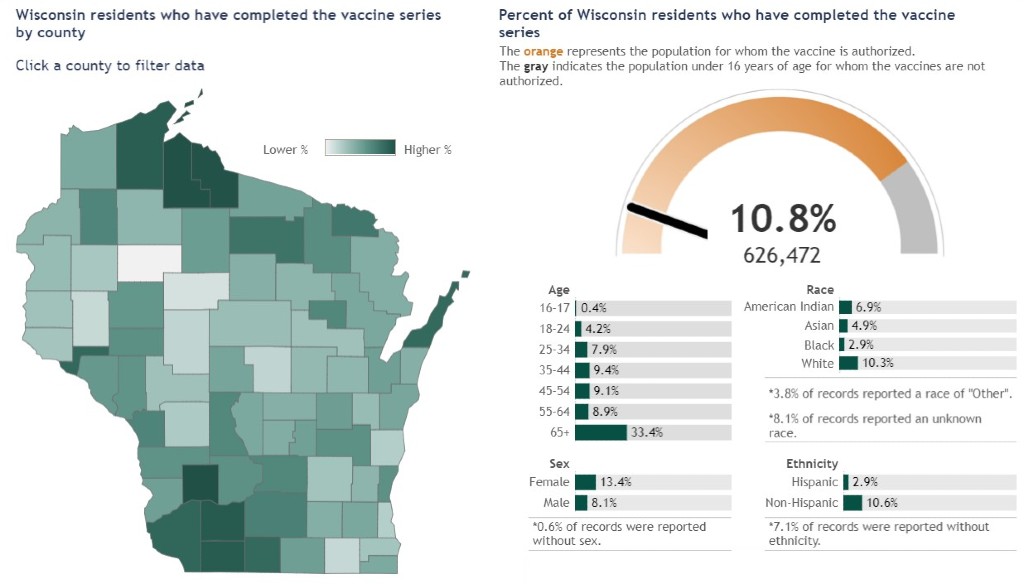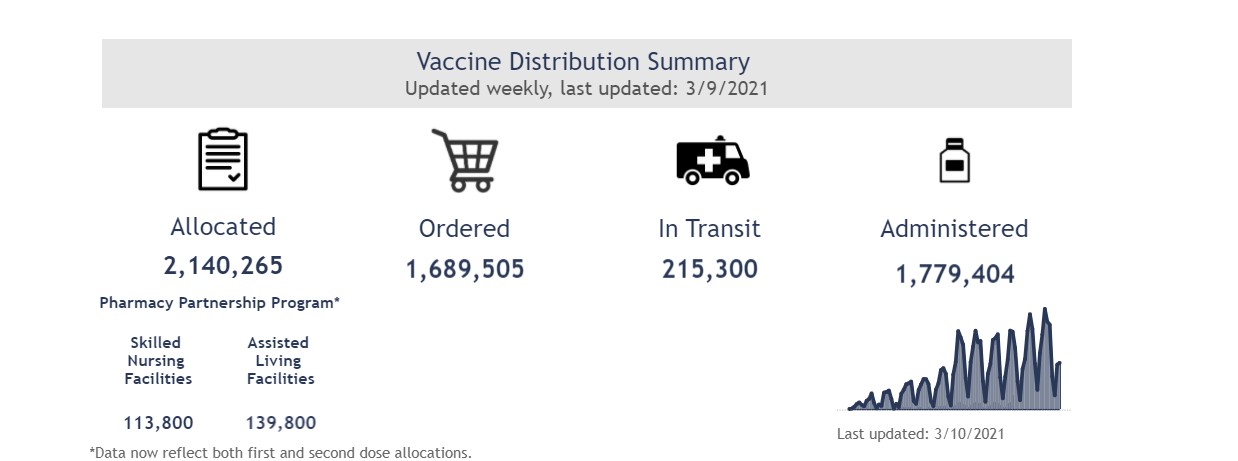COVID Herd Immunity Promises a Safer Wisconsin, But When?

What is Herd Immunity and When Will Wisconsin Achieve Coronavirus Herd Immunity Protection?
By Beth Coopman PharmD, pharmacist at Network Health
Originally published on 3/18/2021 at 7:00 a.m.
Wisconsinites don’t shy away from hard work. Our state’s uniquely ambitious and innovative workforce considers challenges to be opportunities. With the coronavirus pandemic and subsequent safety measures having just passed their one-year anniversary in this state, the challenge is greater than ever. As a state, we are now tasked with the goal to achieve COVID-19 herd immunity across Wisconsin.
What is Herd Immunity?
Herd immunity is when the spread of an infectious disease within a population is reduced thanks to enough people in that population being immune. This can occur when people have either already contracted the disease (less ideal) or received immunizations. When herd immunity is achieved, people unable to get the vaccine or those who don’t get full protection from the vaccine are less likely to come in contact with infected individuals, so they are less likely to become sick.
While we don’t know exactly when Wisconsin will reach this milestone, vaccine eligibility and supply advances have brought us closer to our goal.
What is Wisconsin’s Herd Immunity Goal?
According to the Wisconsin Department of Health Services (DHS), the state goal is to immunize approximately 80 percent of the eligible population.
So, where is Wisconsin right now? According to DHS about 10.8 percent of Wisconsin residents are fully vaccinated and over 60 percent of people age 65 and older received at least one dose as of March 10, 2021.
The U.S. Centers for Disease Control and Prevention (CDC) ranks Wisconsin eighteenth nationwide, with 19.7 percent of the state’s population receiving at least one dose. This data is changing daily, so be sure to visit the Wisconsin DHS’s COVID-19 vaccine page for more information.
 Data source: The Wisconsin Immunization Registry (WIR)
Data source: The Wisconsin Immunization Registry (WIR)When Can I Get the Vaccine?
DHS reports, starting March 29, 2021, people aged 16 years and older with certain medical conditions will be eligible for COVID-19 vaccination.
About two-million more Wisconsinites will be eligible for the COVID-19 vaccine at that time, helping to get us closer to herd immunity status. The phased vaccine eligibility approach makes sense because originally the vaccine supply was only about 70,000 doses per week in Wisconsin. Now that the state is getting more than double the number of doses per week, vaccine eligibility can be expanded.
Population eligible as of March 29, 2021, include people with any of the following.
- Asthma (moderate-to-severe)
- Cancer
- Cerebrovascular disease (affects blood vessels and blood supply to the brain)
- Chronic kidney disease
- COPD (chronic obstructive pulmonary disease)
- Cystic fibrosis
- Down syndrome
- Heart conditions, such as heart failure, coronary artery disease, or cardiomyopathies
- Hypertension or high blood pressure
- Immunocompromised state (weakened immune system) from solid organ transplant, blood or bone marrow transplant, immune deficiencies, HIV, use of corticosteroids, or use of other immune weakening medicines
- Liver disease
- Neurologic conditions, such as dementia
- Obesity (body mass index [BMI] of 30-39 kg/m2)
- Overweight (BMI of 25-29 kg/m2)
- Pregnancy
- Pulmonary fibrosis (having damaged or scarred lung tissues)
- Severe Obesity (BMI 40 kg/m2 or more)
- Sickle cell disease
- Type 1 or 2 diabetes mellitus
- Thalassemia (a type of blood disorder)
Will the New Johnson & Johnson Vaccine Help with Herd Immunity?
Besides increased vaccine eligibility, increased vaccine supply will help achieve herd immunity.
Manufacturers have ramped up production of vaccine doses and with the Emergency Use Authorization (EAU) of a third COVID-19 vaccine, made by Johnson and Johnson, another 48,000 of the single-dose series will be available.
The Johnson & Johnson COVID-19 vaccine is a one-dose shot and is stable at regular refrigeration temperatures, unlike Moderna and Pfizer-BioNTech that require freezing temperatures and a two-dose vaccination series.
When given the option to receive any of the three vaccines, do not wait for a specific COVID-19 vaccine. All three vaccines will help us acquire herd immunity. As Dr. Anthony Fauci, director of the National Institute of Allergy and Infectious Disease, states “the best COVID-19 vaccine to get is the one available to you.”
The rush to vaccinate is also important to get ahead of the more contagious COVID-19 variants.
Wisconsin state health officials say everyone who wants to get vaccinated will be able to by the end of June or early July, which may be the timeframe for approaching herd immunity, if everything goes as planned.

Concerns about getting a particular COVID-19 vaccine stem from clinical trials showing the Johnson and Johnson effectiveness 72% overall versus Pfizer-BioNTech and Moderna at 95% and 94% effectiveness, respectively.
Unlike Johnson & Johnson, however, the studies for Pfizer-BioNTech and Moderna were conducted before the different COVID variances emerged, so it is hard to compare clinical trial results and definitely declare that one vaccine is better than another.
Additionally, Johnson & Johnson’s vaccine is 86% effective against preventing severe disease in the US. The fact that the Johnson and Johnson vaccine protects so well against severe disease and that it was tested with the presence of COVID-19 variants, supports its use as a powerful tool in helping us reach herd immunity.
Other tools added to the COVID-19 fight is the new DHS website that includes a sign up for the statewide registry. Select the blue box “learn more about where and how to get vaccine” on the DHS vaccine about page, or call 1-844-684-1016 for vaccine help and signup. For data related to COVID-19 vaccine rollout in Wisconsin, visit the Department of Health data page here.
For more information and weekly updates check out networkhealth.com, Network Health’s Facebook page or visit our coronavirus vaccine resource page on which you’ll find a link to our most recent weekly vaccine update featuring our manager of pharmacy benefits, Dr. Andy Wheaton.



